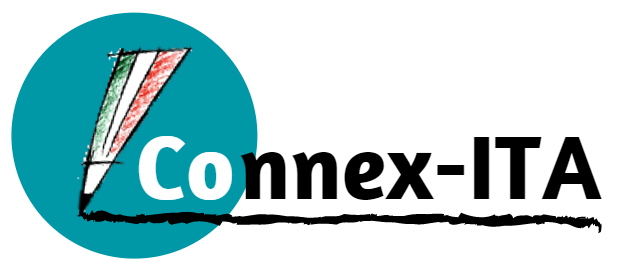5 POPULAR ITALIAN VERBS IN “ERE” (Regular Verbs)
The regular verbs in Italian are classified in three different groups depending on if they end in “ARE”, “ERE” or “IRE” in their infinitive form.
In my previous lesson, I’ve shown you 5 popular verbs in the first category (ARE) while today, we’ll focus on the ones that belong to the second group (ERE).
You’ll learn their conjugation in the present tense and most importantly how to use them.
For each verb, I’ll give you some simple examples so you can start incorporating them in your daily conversations from now!
Here you are the verbs that I’ll cover in today’s lesson:
- CHIEDERE = to ask
- LEGGERE = to read
- VEDERE = to look at / to see
- PRENDERE = to take / to get
- SCRIVERE = to write
Ready? Let’s go!
You can watch the video below or keep reading …
Popular Italian Verbs ending in ERE
The purpose of this lesson is to show you 5 common verbs that belong to the second group of regular verbs.
But I’m not only going to tell you how you can conjugate them (in the present).
The most important thing is to see how you can make simple sentences and start using them in your conversations.
1 – CHIEDERE
“Chiedere” means to ask in Italian.
This is its conjugation:
- Io chiedo
- Tu chiedi
- Lui/Lei chiede
- Noi chiediamo
- Voi chiedete
- Loro chiedono
Remember that these verbs follow a regular pattern in their conjugation and that’s why they’re called “regular”.
So once you know the way they should end in each person, you can conjugate all the verbs that belong to the same group.
In the video I show you how to structure a sentence with this verb. I like formulas as they can be applied in a number of different context 🙂
Here you are some examples:
- Io chiedo informazioni all’ufficio turistico = I ask information to the tourist office
- Tu chiedi l’ora alla tua segretaria = you ask the time to your personal assistance
- Lui chiede il numero al suo amico – he asks the number to his friend
Check out the lesson to learn some basic terminology around the family:
HOW TO CALL YOUR FAMILY MEMBERS IN ITALIAN
2 – LEGGERE
“Leggere” is the Italian verb for “to read”.
Below you can see how you conjugate it:
- Io leggo
- Tu leggi
- Lui/Lei legge
- Noi leggiamo
- Voi leggete
- Loro leggono
Reading is something I’m sure you do pretty often during the day … in fact you’re doing it just now!
So let’s see some common phrase with this verb.
Simple examples:
- Loro leggono un libro = they read a book
- Noi leggiamo il giornale = we read the newspaper
- Lei legge molto = she reads a lot
- Lui legge poco = he doesn’t read very much
3 – VEDERE
Verb number three is “vedere” and it means to see or to look at.
This is the present tense:
- Io vedo
- Tu vedi
- Lui/Lei vede
- Noi vediamo
- Voi vedete
- Loro vedono
In the examples below, the verb “vedere” is used mainly with meaning of to watch, like the verb “guardare“.
- Noi vediamo la TV = we watch the TV
- Tu vedi la partita = you watch the football match
Other Common Expression:
- Ci vediamo domani = see you tomorrow
- Non vedo l’ora = I can’t wait
- Non ti vedo da una una vita! = I haven’t seen you in ages
4 – PRENDERE
Number four is another super popular verb: “prendere”.
It means to take or to get depending on the context.
At the present, you conjugate it in the following way:
- Io prendo
- Tu prendi
- Lui/Lei prende
- Noi prendiamo
- Voi prendete
- Loro prendono
Let’s see some of the most common ways to use this verb in a daily conversation.
Uses of “prendere”:
- Noi prendiamo l’autobus = we take the bus
- Voi prendete il treno = you take the train
- Tu prendi i soldi in banca = you take the money from your bank
- Loro prendono il sole = they’re sunbathing
- Io prendo il caffe’ = I’m getting a coffee
- Tu prendi il te’ = you’re getting a tea
5 – SCRIVERE
Final verb for today is “scrivere”, that means to write.
There’s nothing new in its conjugation:
- Io scrivo
- Tu scrivi
- Lui/Lei scrive
- Noi scriviamo
- Voi scrivete
- Loro scrivono
You can write many different things, like a text (messaggio), an email (email), a letter (lettera), a card (biglietto) or a note (nota).
So for instance:
Loro scrivono un’e-mail = they write an e-mail
He/She’s a GOOD/BAD WRITER:
To say that someone is a good writer you can say: scrive bene.
But if you don’t believe they’re very good, then you should say instead: scrive male.
CAN’T WRITE!
Finally if a person can’t write at all or don’t know how to write, you can say: non sa scrivere!
What to Read Next
If you want to know a bit more about Italian verbs, then you can check out one of the following lessons:
- 10 WAYS TO USE THE ITALIAN VERB “STARE” (PRESENT)
- HOW TO USE “TO HAVE” IN ITALIAN (PRESENT TENSE)
- THE ITALIAN VERB TO DO: 5 WAYS YOU CAN USE IT (PRESENT)
Do you need a PLAN to learn Italian?
Check out my FREE PLAN to learn Italian in 7 Days.
Of course it doesn’t take only 7 days to learn Italian … but this plan is a great help to get started especially if you’re feeling a bit lost!
You can request it for FREE HERE.
Don’t waste precious time and do it now! 🙂

